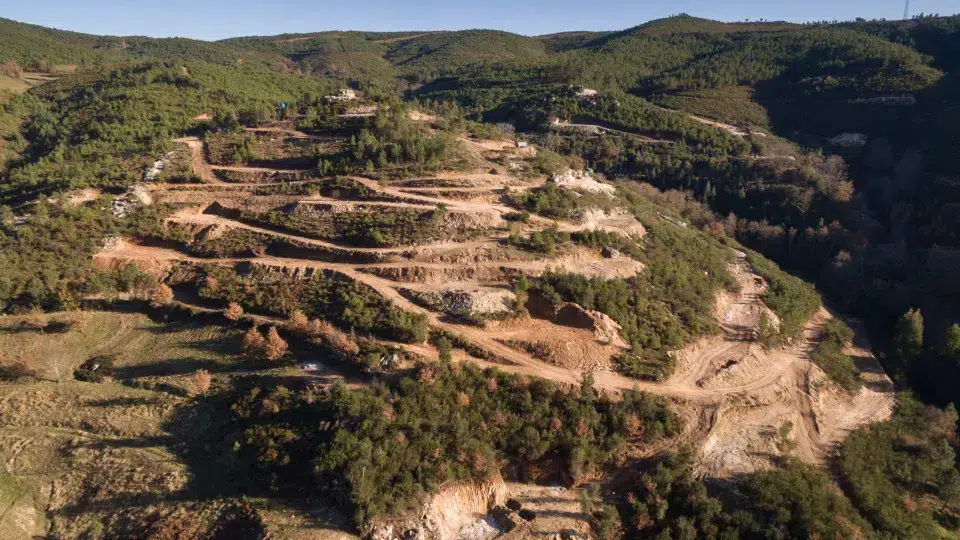
A complaint was filed in 2021 by the Spanish non-governmental organization Fundación Montescola, with the Aarhus Convention Committee’s conclusions released today in a statement.
The United in Defense of Covas do Barroso Association (UDCB) and MiningWatch Portugal were observers in the process.
The three NGOs believe that the committee “confirms the environmental impact assessment process did not ensure the right to public participation” and advocate for the annulment of the Environmental Impact Declaration (DIA).
The open-pit lithium mine received a conditional DIA in 2023, with Savannah planning to begin lithium production in 2027 in the municipality of Boticas, district of Vila Real.
The complaint dates back to the public consultation period of the first version of the Environmental Impact Study (EIA) after several requests for access to documents related to the Environmental Impact Assessment (AIA) were denied.
The Aarhus Convention Committee concluded that the Portuguese Environment Agency (APA), the Directorate-General for Energy and Geology (DGEG), and the Northern Regional Development and Coordination Commission (CCDR-N) “deliberately and unjustifiably withheld information.”
The committee noted, among other things, that the APA did not respond to the environmental information request within the timeframe set by the Convention, that the APA and CCDR-N withheld environmental information using an unfounded refusal criterion, and that the DGEG breached the Convention by forwarding the request to another entity while possessing the requested information.
The report also states that the APA failed to ensure a reasonable period for public participation in the redesigned EIA (2023) and considers Portuguese legislation in violation of several articles of the Convention, such as maintaining a 10-business-day consultation period for the redesigned EIA, which violates Article 6 of the Convention, recommending changes to align with the treaty ratified by the Portuguese state.
The United Nations Economic Commission for Europe (UNECE) Convention on Access to Information, Public Participation in Decision-Making, and Access to Justice in Environmental Matters—commonly known as the Aarhus Convention—was adopted on June 25, 1998, in the Danish city of Aarhus.
In Portugal, the Convention came into effect in September 2003.
Carla Gomes from UDCB remarked, quoted in the statement, “This decision is crucial because it negates the idea that our criticisms of the evaluation process are unfounded. The violation of the right to information access and public participation is more than enough reason to annul the DIA and to start the evaluation process from scratch.”
Nik Völker from MiningWatch Portugal stated, “The Aarhus Convention Committee’s conclusions have ramifications beyond the Barroso lithium project,” questioning what guarantees “they provide to areas where new environmental assessment processes are underway or might occur.”
“These entities become discredited through their actions, which is detrimental to everyone. Something needs to change, and annulling the DIA would be a strong signal in that direction,” he highlighted.
Joam Evans, speaking for Montescola, welcomed the decision and stated that this NGO “will work with UDCB and MiningWatch to ensure the protection of the Barroso World Agricultural Heritage,” hoping that the “decision is not swept under the rug.”
“We want concrete actions from the Portuguese State (…) The DIA must be annulled, and we will not rest until we accomplish this,” he asserted.
The Parish Council of Covas do Barroso launched a legal action in 2023 to annul the DIA.




